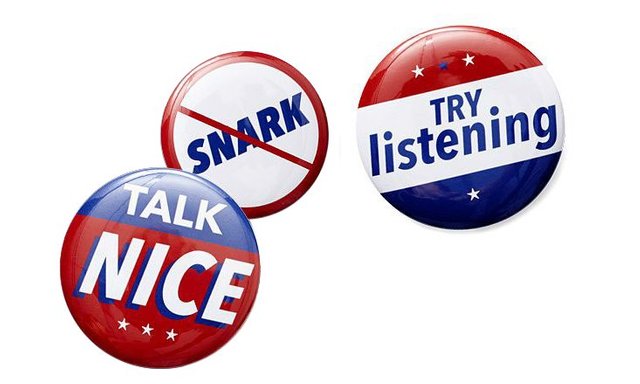I Vote for Respect
We’re heading into the voting booths soon, and between now and then, you can count on daily doses of hostility and all-out nastiness. We’re seeing unprecedented incivility this political season, not just from politicians but also from friends and family. I’ve even heard of parents prohibiting kids from dating people from a different political party.
For months, I’ve been watching folks become belligerent, fearful, and agitated. In fact, a nationwide survey conducted for me by my friend, a pollster and strategist, found that this election is causing women to feel hugely stressed. The only thing worrying them more is terrorism.

The fallout? I call it Pre-Election Stress Disorder (PESD). It worries me: This kind of stress can raise your blood pressure, wreck your sleep and your diet, and maybe even land you on my operating table. To get through the remaining weeks with our health intact, I’d like to see us lower the level of polarization that’s happening all over. You can’t eliminate opposing points of view, nor would you want to. But you can try to manage the intensity of the exchange so it feels more empathetic and less rageful than an all-caps rant about [insert your hot-button issue of choice here]. Some ideas:
Be a social media explorer
We get much of our information from outlets that agree with what we already think, but it’s useful to expose yourself to the completely opposite perspective. If you read or view something you must argue with, rely on the “count to 10” rule, or consider a private message rather than a public bashing; there’s less chance that it’ll escalate.
Ask, don't tell
Questions show that you want a reasoned dialogue. For instance, as a doctor, I don’t finger wag and say, “You should eat apples and kale.” I ask people which healthy foods they like and what triggers them to eat junk. Our exchange turns into a conversation, not a sermon. That doesn’t compromise your principles; it enriches your relationships.
Channel compassion
Your cousin’s beliefs may rattle you, but instead of dismissing her, wait a beat and ask why she feels that way—then listen. What might inform her politics? What are her personal frustrations? It’s basic compassion, and studies have found that showing some can boost well-being. I’m not naive enough to think we all need to stand as one on everything. But empathy could help us step a little closer rather than yell at each other across the divide, for a healthier democracy and a healthier you.
This election year is the craziest I have ever seen. If ever we needed respect and empathy it is now! :-)
Thanks!
Vote based on your principles and you should be fine. Anyone not getting stressed out on environment and economy is wasting their time. While terrorism might be a fear factor, it really isn't all that bad. Especially if you consider our military industry, our "wall" are impenetrable.